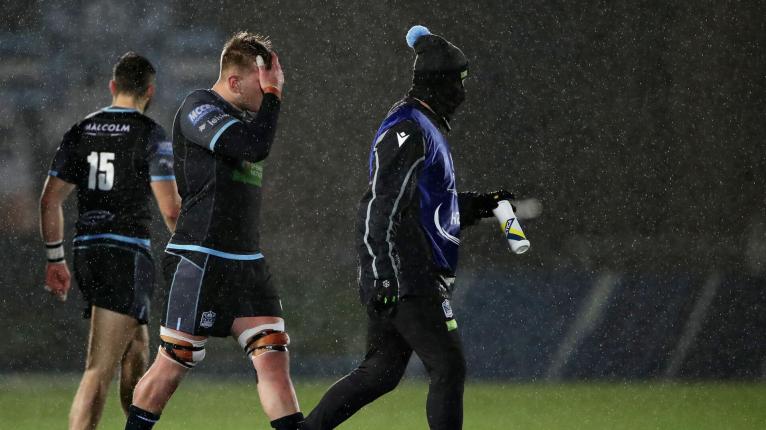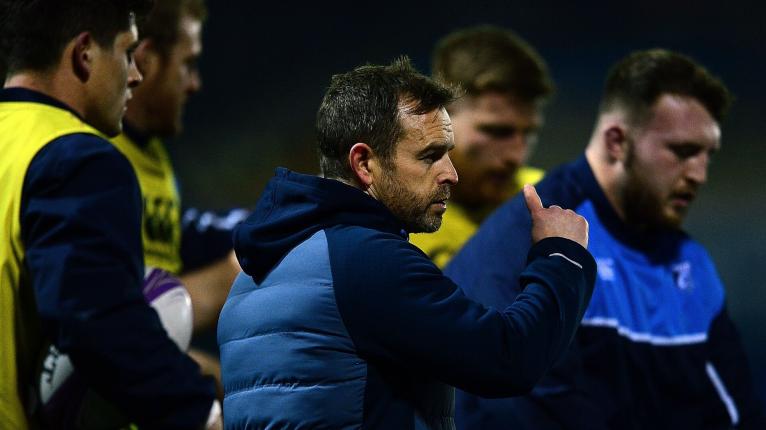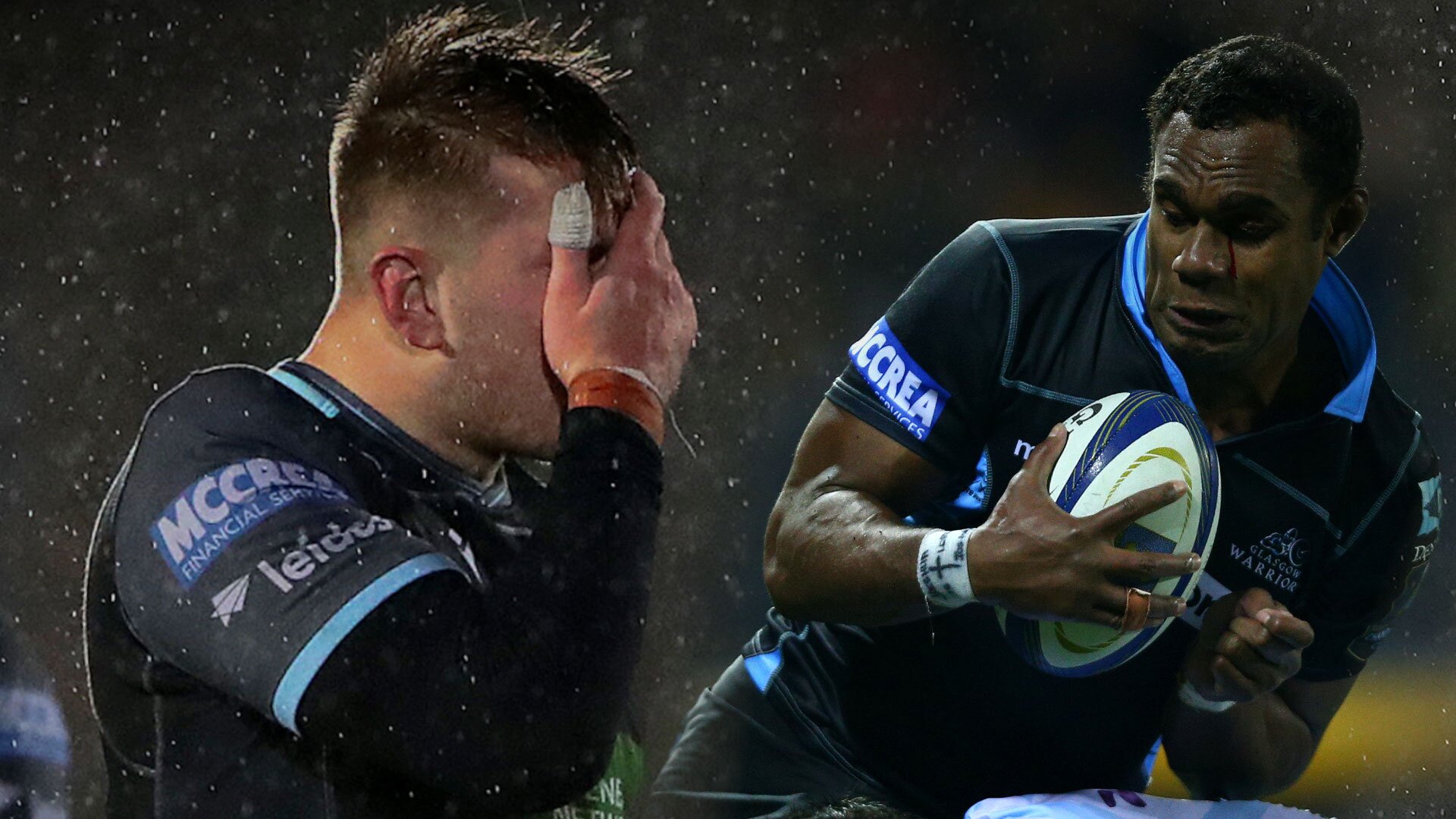Like great performers leaving the stage one by one, the eye-watering list of Glasgow departures grows by the season. Since the last World Cup, Warriors have lost Stuart Hogg, Finn Russell, Alex Dunbar, Mark Bennett, Josh Strauss and Leone Nakarawa.
They will lose Dave Rennie to Australia in the summer and this week, suffered the public gut-punch of Jonny Gray’s near-certain exit, swiftly followed by more uncertainty over the future of Nick Grigg, one of their most effective players in the Rennie era.
No-one expects Glasgow to cling on to these guys forever. Nor are they demanding that Beauden Barrett, Manu Tuilagi and Cheslin Koble be shipped in to replace them. But what they do ask is a certain ambition in their signings, a purpose that befits an established Pro14 heavyweight.
There’s a level of expectancy now, a standard set by league finals and European quarter-finals and relentless sell-out crowds. The fans turn up over and over and there’s a growing angst that their faith – and money – is not being reflected in their team’s recruitment. A bitterness too is beginning to fester as along the M8, Edinburgh hold on to their biggest hitters while Glasgow continually lose theirs.
Continue reading below…
WATCH: Life After Rugby – Andy Powell. One of Welsh Rugby’s biggest characters on and off the pitch, RugbyPass traveled to Brecon to see how life after rugby is treating Andy Powell.
In Adam Hastings, Warriors had a fabulous Scottish replacement for Russell, who left for Racing 92 in the summer of 2018, but his capture and rapid development is the exception rather than the rule.
They have never found an adequate ball-carrying successor to Strauss – Samu Vunisa and Tevita Tameilau were hardly seen and delivered little. Few of the procession of talented centres have been as impressive as Dunbar and Bennett at their best. They have done well to get Nakarawa back, but only for five months and only because of the freakish circumstances under which he suddenly became a free agent. They are relying on Ruaridh Jackson and Tommy Seymour to plug the Hogg gap – both are fine players, but each is over 30 and neither is a full-back by trade.

If one gets crocked, particularly Seymour, they’re in trouble. If Hastings suffers any kind of serious damage, they’re in a whole world of hurt. The other fly-halves on Glasgow’s books are sound in the relative tranquillity of the early Pro14 matches, but you wouldn’t want to depend on any of them in the savagery of the Champions Cup or league play-offs.
Then there is the uneasy replacement of Rennie, Danny Wilson being moved from his role as Scotland forwards specialist to take over the head coach’s position. Regardless of your opinion of Wilson – and he did a tremendous job at Wales Under-20s then Cardiff Blues – the aesthetics of his appointment are not good. At a time when Glasgow are bigger than ever, eager to expand their stadium and in need of some seriously good additions, it looks like Scottish Rugby have taken the easiest and cheapest option, shunting across a bloke who is already on their books, whose performance in his current job does not proffer a rousing endorsement of his credentials, and who would need a sizeable pay-off were he to be let go.
A number of clubs are currently pursuing the no-nonsense Glasgow centre.
– writes @JLyall93 https://t.co/zlmmCgSM0t
— RugbyPass (@RugbyPass) January 2, 2020
That business is unsettling, but far more alarming is the absence of burgeoning Scots raring to seize first-team berths. The brilliant, ravenous home-grown core that propelled Glasgow to the Pro12 title in 2015 will be all-but gone come the end of the season. Where is the next lot? Where is the depth and breadth of emerging players? Matt Fagerson, Stafford McDowall and Scott Cummings have been around for a couple of seasons and there are very high hopes for Jamie Dobie, but beneath them, the outlook is not encouraging.
Scotland’s Under-20s lost all but one of their Six Nations matches and took such a pasting in the Junior World Championship that they were eliminated from the tournament and consigned to the second-tier Trophy next time around. In five matches, all of them defeats, they shipped 197 points – an average of over 39 per game – and were beaten by both Georgia and Fiji, the latter putting eight tries past them. Of course, there are fine players in that group, but we’ve scarcely seen any of them exposed to the brutality of the professional game.

As much as Scottish Rugby cannot clog up its two pro-teams with imports, there needs to be a supplementary sprinkling of overseas talent. These players bring competition, vital experiences from different – and often superior – rugby cultures and environments and are generally available when an army of Scotland internationals disappear on Test duty twice a season.
When Glasgow won that Pro12 title, they laced their Scottish heart with highly influential foreigners, Nakarawa, Strauss, DTH van der Merwe, Niko Matawalu and Sean Maitland all adding telling value.
When Edinburgh got to the semi-finals of the Heineken Cup eight years ago – again, with an overwhelmingly Scottish team – they had the ballast of Sean Cox, the outstanding Netani Talei and the ruthless finishing of not-yet-Scottish-qualified Tim Visser.
This balance is key. No-one expects Glasgow to do away with their focus on developing Scottish players and eventually, inevitably, losing the best of them. They have kept hold of Fagerson, Hastings and George Horne on what will be significantly better terms than their academy deals, and spent a decent whack on re-signing Fraser Brown and Huw Jones.
But right now, with virtually no chance of Champions Cup progression, sitting fourth in Pro14 Conference A having suffered five defeats in nine matches and played two games more than the Cheetahs directly above them, they are paying a heavy price for their recruitment.
Confirmed. https://t.co/nTrRyUGrdE
— RugbyPass (@RugbyPass) January 2, 2020
Of the seven players who arrived this season, only Aki Seuili has made a tangible impact, and the prop has been in the country less than two months. The rest have been World Cup squad fodder or in the case of Jale Vakaloloma, raw and injured. There has been neither a marquee signing to quicken pulses, nor an injection of new and invigorating impetus.
The worry now is that a pool of undoubtedly talented players is stagnating and that Glasgow’s season is in grave danger of flat-lining. Nakarawa might be able to apply the defibrillators, but keeping him beyond the summer will be fiendishly difficult.
Behind the scenes, some vigorous scouting and signing work is well under way – and boy, is it needed. The back-row will be beefed up with the addition of some hulking ball-carriers a priority. Getting a recognised full-back in the building is another.
A new, somewhat unfancied coach; a bigger stadium, an increasingly disgruntled fan base and a squad in need of major surgery – these are seismic months in Glasgow’s quest to preserve the lofty status they worked so hard to acquire.




































